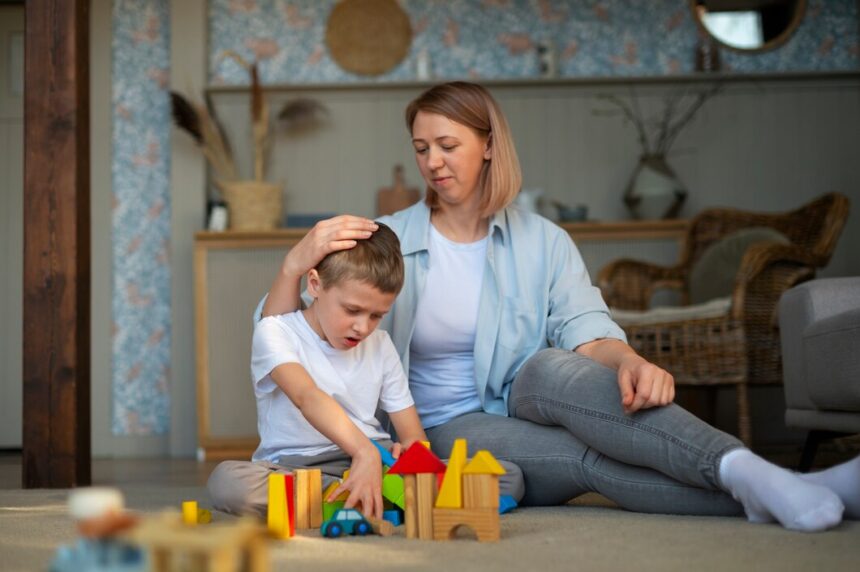Autism spectrum disorder (ASD) is a developmental condition that affects individuals’ social communication skills, behavior, and sensory processing. While autism can be diagnosed at any age, early recognition of signs and symptoms is crucial for early intervention and support. As a parent or caregiver, being aware of the early indicators of autism in toddlers can help facilitate timely intervention and promote positive outcomes for children. Here’s a comprehensive guide to understanding the early signs and symptoms of autism in toddlers:
What is Autism Spectrum Disorder?
Autism spectrum disorder (ASD) is a complex neurodevelopmental condition characterized by a wide range of symptoms, behaviors, and challenges. While the severity and presentation of symptoms can vary widely among individuals, common features of autism include difficulties with social interaction, communication, and repetitive or restricted behaviors.
Early Signs and Symptoms of Autism in Toddlers:
- Delayed Speech and Language Development: One of the earliest indicators of autism in toddlers is delayed or absent speech and language development. Children may not babble, use gestures, or speak single words by 12 months, or they may have limited verbal communication skills by 18 months.
- Lack of Social Reciprocity: Toddlers with autism may show limited interest in engaging with others and may not respond to their name or attempts at interaction. They may avoid eye contact, prefer solitary play, or exhibit a lack of interest in sharing experiences with others.
- Difficulty with Joint Attention: Joint attention refers to the ability to share attention with others and coordinate attention between objects and people. Toddlers with autism may have difficulty following points or gestures, participating in shared activities, or responding to social cues.
- Repetitive Behaviors: Repetitive behaviors are a hallmark feature of autism and may manifest in various forms in toddlers. These behaviors can include repetitive movements (e.g., hand flapping, rocking), insistence on sameness or routines, and intense interests in specific topics or objects.
- Sensory Sensitivities: Many toddlers with autism experience sensory sensitivities or differences, which can affect their responses to sensory stimuli such as lights, sounds, textures, or smells. They may be hypersensitive (overreactive) or hyposensitive (underreactive) to sensory input, leading to behavioral reactions or avoidance.
- Difficulty with Transitions: Toddlers with autism may struggle with transitions or changes in routine, becoming upset or agitated when faced with unexpected or unfamiliar situations. They may rely on predictability and structure to feel secure and may have difficulty adapting to new environments or activities.
- Limited Pretend Play: Pretend or imaginative play is an important developmental milestone in early childhood. Toddlers with autism may engage in limited or repetitive pretend play, such as lining up toys or engaging in scripted routines, rather than engaging in imaginative or symbolic play scenarios.
- Unusual Motor Movements: Some toddlers with autism may display unusual or atypical motor movements, such as toe-walking, hand-flapping, or spinning in circles. These motor behaviors may be repetitive in nature and serve as self-soothing or sensory regulation mechanisms.
Seeking Early Intervention and Support:
Recognizing the early signs and symptoms of autism in toddlers is the first step toward accessing early intervention and support services. If you notice any of the aforementioned behaviors or developmental delays in your child, it’s essential to consult with a pediatrician or developmental specialist for a comprehensive evaluation.
Understanding the early signs and symptoms of autism in toddlers is crucial for early identification, intervention, and support. By recognizing these indicators and seeking professional guidance, parents and caregivers can play a vital role in promoting their child’s developmental progress and well-being. Early intervention services, such as speech therapy, occupational therapy, and behavioral interventions, can help children with autism reach their full potential and thrive in their social, academic, and everyday lives. If you have concerns about your child’s development, don’t hesitate to reach out to qualified healthcare professionals for guidance and support.










